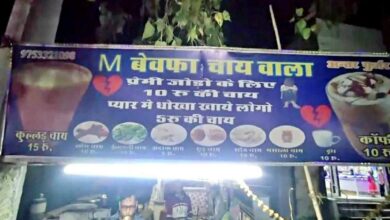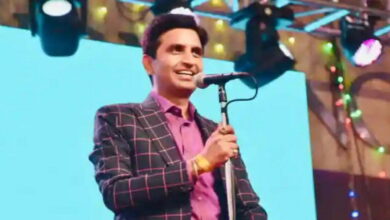donations should be accounted for

The proposal of the Election Commission to fix cash donations to parties should be welcomed, but at the same time it should be expected to keep track of all donations received by parties and ensure that the ruling party There should not be a situation of inequality between the party and the opposition parties. The Election Commission should not send selective proposals or behave selectively. He is worried about the cash donations of 20 thousand rupees to the parties, but through electoral bonds hundreds of crores of rupees are being transacted in such a secret manner that no one is aware of who, whom, His eyes are closed about how much he has donated. The Election Commission is concerned that the limit of cash donations to parties should not exceed Rs 20 crore, but if there will be no scrutiny of donations received from abroad, it is not worried about it. This dual attitude is not good for democracy. The Election Commission should take a holistic view of political donations.
The Election Commission has sent a proposal to the government to reduce the limit of cash donations to parties from Rs 20,000 to Rs 2,000. That is, the anonymous donation should not exceed two thousand per person. Along with this, it has also been said in the proposal that the limit of such maximum donation should also be fixed. According to the commission’s proposal, that limit should be equal to 20 per cent of the total donation or Rs 20 crore in cash, whichever is less. This means that in practical terms, the Commission has proposed to raise the limit for cash donations to Rs 20 crore. The question is why should there be so much? Why not make a law to take all donations by check or digitally and why not bring the donations of political parties under the purview of income tax? Why not every penny received by the parties be accounted for and taxed? After all, parties are not serving any country and society? She contests elections with tax-free money received from the public in the form of donations and after winning, she gets a hefty salary and allowance from the public’s tax money. Then why should their donations remain tax free?
It has always been a rule in India that whoever is in the government gets more donations. Isn’t this in itself evidence of ‘Kwid Pro Co’ ie collusion? Doesn’t this prove that the government party receives more donations, whether individual or institutional or corporate, because it can help the donors in some way? This is a simple calculation like two plus two. Despite this, the Election Commission never paid any attention to it. Even earlier it used to happen that those in the government used to get more donations, but then the opposition parties also got some donations. But now it is not so. Now almost the entire donation goes to the ruling party i.e. BJP. There is no need to provide every year’s data to prove this point. Only a year or two’s data will tell. When the corona virus was at its peak, that is, in the financial year 2020-21, the BJP received donations of Rs 477 crore, which was 80 percent of the total donations. At that time, apart from the big donations, that is, cash donations given by all the parties together, the big donation would have been 593 crores, of which 80 percent was received by the BJP alone. The BJP alone got four times the donations received by all the other big parties of the country. Shouldn’t the Election Commission think about this?

Next come the case of electoral bonds. After coming to power at the center, the Narendra Modi government started a system of electoral bonds. Electoral bonds are issued four times a year and anyone can buy them and give them as donations to political parties. According to this law, no one will know who bought the electoral bond. It has been kept completely confidential. This has completely eliminated the transparency of political donations. It is a false propaganda that companies buying bonds will record it in their books of accounts. That ledger does not come before the public. Therefore, no one knows which corporate house or company or individual has donated to whom through electoral bonds. On this basis, the Election Commission had opposed it and the Reserve Bank of India had also opposed it. A petition has been pending in the Supreme Court against this for years, which is now to be heard. It is also feared in that petition that this will encourage black money. It is worth noting a fact that in the first year after the introduction of electoral bonds, 95 per cent of the donations through it went to the BJP. Electoral bonds ensure that no corporate donates to opposition parties as the government knows whether or not anyone else knows who bought the bond.
After this, the third case is of foreign donations. The Delhi High Court had held both the Congress and the BJP guilty of violating the FCRA in the matter of foreign donations. But the Narendra Modi government at the Center changed the law of foreign donations received by parties in 2018, due to which foreign donations received by parties since 1976 were excluded from the investigation. Congress also supported the BJP in this. Think foreign donations from all the NGOs in the country are being scrutinized and FCRA licenses are being revoked but parties have been taken out of its purview!
Therefore, the Election Commission should take a holistic view of the donations received by political parties. If it cannot think holistically, it should focus more on checking large donations from electoral bonds rather than cash donations of Rs 20,000. Efforts should be made to ensure transparency and equity in it. He should intervene and investigate the matter of foreign donations. The initiative taken by the Commission in the matter of cash donations will target only small and opposition parties. They should also be investigated but more important than them is the investigation of big and ruling parties.






